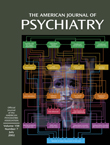Mindfulness-Based Cognitive Therapy for Depression: A New Approach to Preventing Relapse
The authors provide a complex and compelling approach to the prevention of depression. Their combination of significant elements of two key modalities referred to as “mindfulness-based cognitive therapy” is a masterful enmeshment. Their use of these techniques in a treatment process that is equal parts therapy and education is effective utilization of both in a fashion that is attractive and appealing to their patients. Their conclusions as to the effectiveness of their approach are surprising. The evolution of their ideas is a study in creativity, perseverance, and good fortune.
The treatment of depression remains a daunting, always perplexing challenge. Its ubiquitous presence makes depression a major public health problem. The presence of newer, better, safer, less troublesome medications provides a sometimes seductive view that depression is easy to treat. Nothing could be farther from an accurate picture of this tenacious group of illnesses. These costly medications are effective, but they are not prescribed in a well-defined manner. The diagnosis is often generic and general, the plan of treatment vague, the enthusiasm for treatment brief, and the relapse rapid. It is the area of relapse prevention that is the focus of this book.
The authors present their work modestly. Their ideas involve their own creativity, but they build on ideas and techniques from many sources. Their ample praise for the contributing works of others is refreshing. The need for persistence and discipline is paramount. Preventing a relapse requires daily discipline. Time is required, along with hard work. The results are rewarding.
Mindfulness-Based Cognitive Therapy for Depression is a convincing work. The authors conclude that this “group-based psychological intervention, initially administered to patients in the recovered state, can significantly reduce the risk of future relapse/recurrence in patients with recurrent major depression.” It is a challenging book, hopeful, with a resplendence of useful tips.



